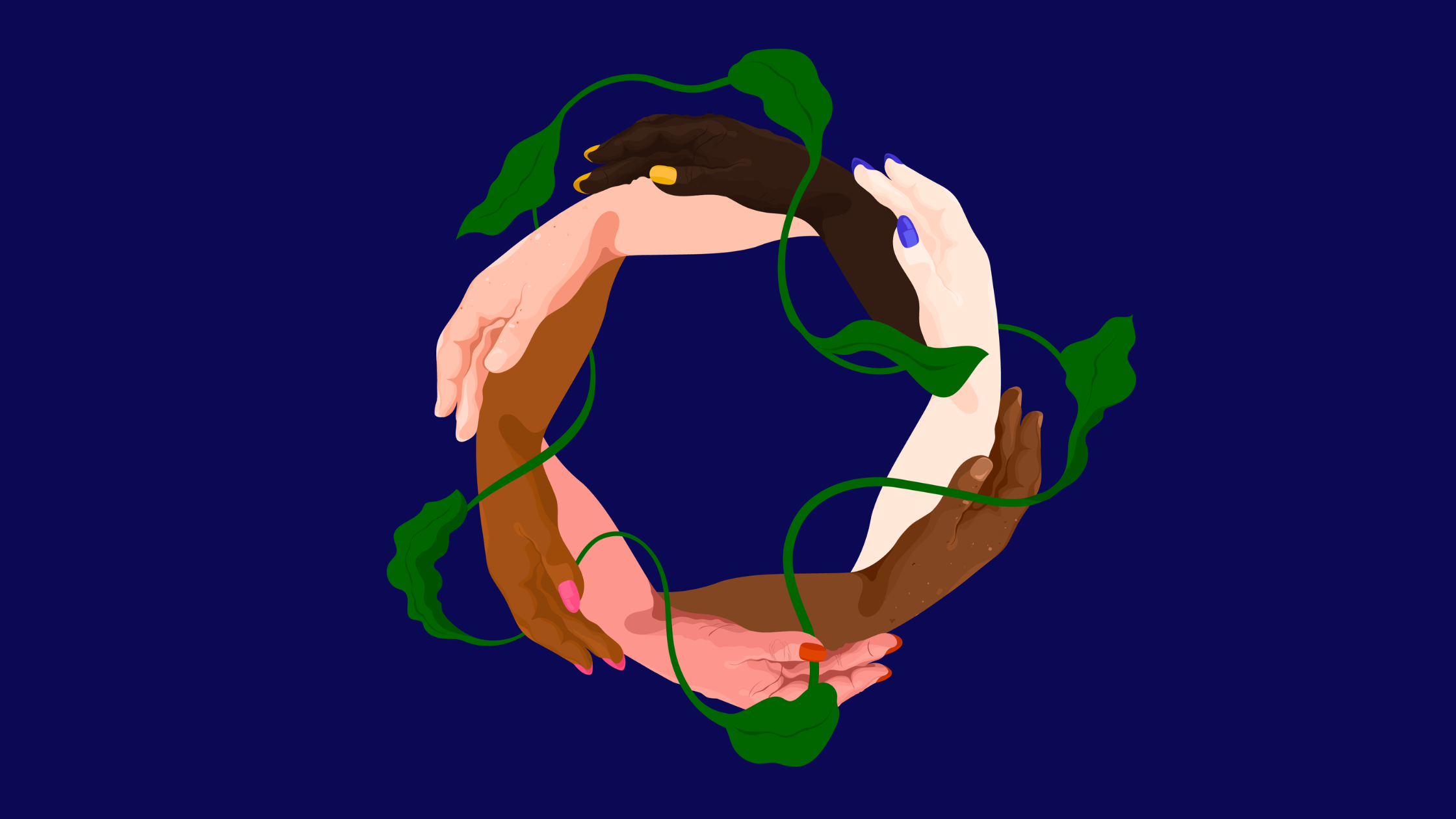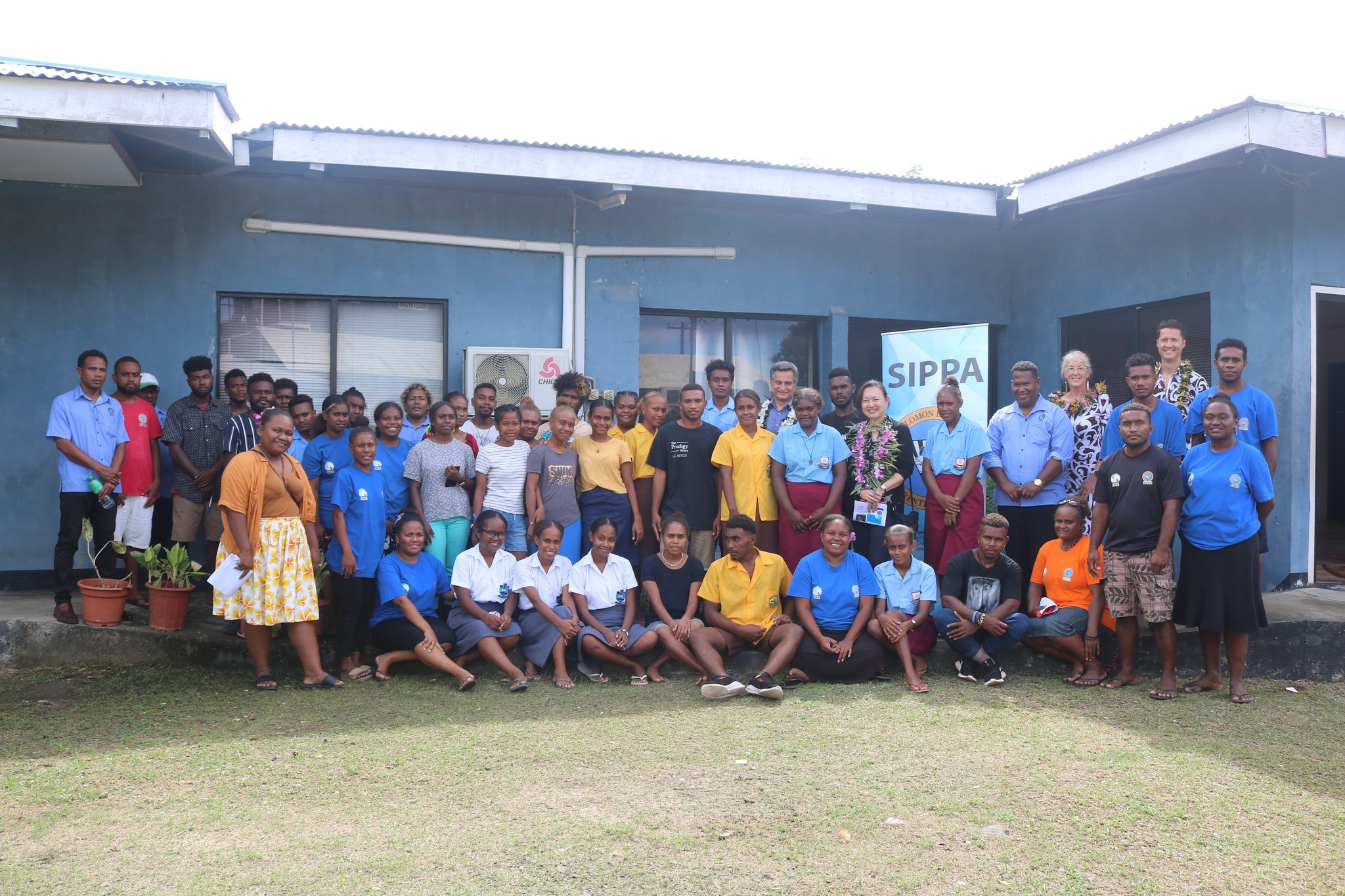
Spotlight
A selection of news from across the Federation

IPPF Statement on the 68th session of the Commission on the Status of Women (CSW)
IPPF welcomes the agreed conclusions of the 68th session of the Commission on the Status of Women (CSW), on the theme of “Accelerating the achievement of gender equality and the empowerment of all women and girls by addressing poverty and strengthening institutions and financing with a gender perspective”. IPPF actively engaged in the process by providing technical inputs to Member States, raising awareness about the interlinkages between SRHR, poverty, gender equality and the empowerment and human rights of all women and girls.
Filter our news by:


| 01 December 2023
IPPF marks World AIDS Day by announcing the launch of a special program to roll out new biomedical HIV prevention methods
IPPF provides comprehensive sexual and reproductive health care to clients around the world. HIV testing, prevention, and treatment services are essential parts of our integrated sexual and reproductive health care package. To expand the choices individuals have to protect themselves from HIV, IPPF is excited to announce a special program to provide the newest methods of HIV prevention - injectable PrEP (a 2-monthly injection of cabotegravir-LA) and the vaginal ring (a monthly vaginal ring of dapivirine), as well as expanding where oral PrEP is offered. This program is being launched through a consortium of IPPF Member Associations called the Consortium to Advance Access to new HIV Prevention Products (CAAPP) - led by Family Planning Association of India, and including the Family Life Association of Eswatini, Lesotho Planned Parenthood Association, Family Planning Association of Malawi, Federation of Reproductive Health Associations, Malaysia, Family Planning Association of Nepal, and Planned Parenthood Association of Thailand. We hope this program will increase access to the number of ways people can protect themselves from HIV, supporting individual's choice to find an HIV prevention method that works for them.

| 11 August 2023
Australia's New International Development Policy Sets out a Clear Pathway
Australia’s new International Development Policy was launched this week with a focus on building a peaceful, stable and prosperous region. Announced as the first long term development strategy in almost a decade, it was welcomed by those in the development sector. In contrast to the former government, Australia’s Foreign Minister has committed to rebuilding their ODA budget. While this is likely to be a slow build, with no ODA/GNI targets set, the new policy sets out a clear pathway. IPPF welcomes the policy’s approach to localisation, the strong focus on climate resilience and humanitarian action, the commitment to gender equality and LBGTQI+ rights and the ongoing support for sexual and reproductive health and rights. The new policy has a strong focus on Australia’s role as a development partner in the region. While the geographic focus remains unchanged, the approach is quite different. At the launch, Minister Wong highlighted the importance of sovereignty, where ‘each country can determine its own fate’. In practice for DFAT, this will mean greater accountability at post, more collaborative development of country Development Partnership Plans, more frequent progress reviews and a greater emphasis on implementing learning from evaluation. It also translates to greater investment in local solutions, including funding to support partner governments, local procurement, and civil society. The announcement of a new Civil Society Partnership Fund was well received, although details are lacking. The other underlying theme which differs dramatically from previous aid policies is climate change, recognised by the Minister as the greatest shared challenge for the region. DFAT plans to increase climate investments and better address climate risk with a target that half of bilateral and regional investments must have a climate objective by 2024-25, increasing to 80% by 2028-29. The policy also references a new humanitarian strategy, which will complement the aid policy and is due to begin consultation in September. Inclusion is a high priority within the policy. Minister Wong highlighted the importance of a region where ‘all can thrive and reach their potential’. Three focus areas for inclusion are Gender Equality, Disability Inclusion and LGBTQI+ rights, with supporting strategies in development, due for completion by the May budget 2024. The government is reinstating the target for 80% of development investments to address gender equality and a new requirement for investment over $3m to include gender equality objectives. While health is not a focus area within the policy, it was mentioned as part of infrastructure programming. The policy notes the vulnerability of many health systems in the region and Australia’s continued role to strengthen capacity and support prevention and response for both infectious and non- communicable diseases. There is also a commitment to expand universal health coverage and a specific mention of support for sexual and reproductive health and rights. Resourcing for international development is explored in detail. Responding to the findings of the Development Finance Review and recognising the limitations of ODA funding, the policy proposes an increase in blended finance, and an investment of up to A$250m to leverage private investment. This will be supported by a new unit in DFAT to work with philanthropy and impact investment. The policy also highlights changes to reporting and accountability within DFAT, greater transparency of results, and increased investment in DFAT development capability (36.8m announced in the May budget). Since the integration of AusAID into DFAT in 2013, international development has been a low priority in Australia, undervalued and diminished through multiple budget cuts. The Albanese government has promised something different. While the lack of an ODA funding target is disappointing, this policy is a step in the right direction. The recognition of shared challenges and shift towards genuine engagement highlight an understanding of the value of development work, not just for beneficiaries but for the region as a whole. Together with DFAT’s investment in development capability and shift to a whole of government approach and Minister Wong’s outspoken commitment to the 2030 Agenda for Sustainable Development there are strong indications that Australia is taking development seriously. As recipients and partners of the Australian International Development program, IPPF look forward to supporting the roll out of the new Australian International Development Policy, consulting on the strategies and participating in the design of new programs. We hope to see the collaboration continue and the funding match the ambition. IPPF works closely with the Australian government and is funded through the Department of Foreign Affairs and Trade to integrate sexual and reproductive health and rights (SRHR) into humanitarian preparedness response and recovery through SPRINT; to restore services, particularly to marginalized populations impacted by COVID-19 through RESPOND and to support the ambitious Pacific Niu Vaka Strategy Phase 2, enabling quality SRHR to be realised for everyone in the Pacific. To read the full policy, click here. Cover illustration by Edinah Chewe for The Greats.

| 28 March 2023
IPPF’s Director General Visits Solomon Islands and Australia
The Director General of the International Planned Parenthood Federation (IPPF), Dr Alvaro Bermejo, is in Australia this week for high level meetings with Australian Government Ministers and the Australian Department of Foreign Affairs and Trade (DFAT). He is joined by Ms Tomoka Fukuda, Regional Director of IPPF’s East and Southeast Asia and Oceania Region (ESEAOR) and Ms Phoebe Ryan, IPPF’s Chief of the Australia and New Zealand Office. In Australia, Dr Bermejo has been privileged to meet with Australia’s Minister for International Development and the Pacific, the Hon Pat Conroy. Together, they discussed how Australia can play a leadership role in advancing sexual and reproductive health and rights through Australia’s international development cooperation.

| 20 July 2016
End gender based violence and HIV to ensure equity
18 July, Durban: Gender Based Violence (GBV) must be recognised and addressed if we are to end HIV and AIDS urged the International Planned Parenthood Federation (IPPF) and the United Nations Entity for Gender Equality and the Empowerment of Women (UN Women) at a panel during the International AIDS Conference Monday. The impact of HIV among women and girls in all their diversity is significant and alarming. Women’s greater physical vulnerability to HIV is compounded by social norms, gender inequalities, poverty and violence. Women living with HIV are also more likely to face stigmatisation, infertility, and even abuse and abandonment, contributing to their disempowerment. In East and Southern Africa, the risk of HIV among women who have experienced violence maybe three times higher In Uganda and South Africa studies found women who experienced intimate partner violence were 50 per cent more likely to have HIV than women who had not experienced violence. In many countries in Africa, getting married is among the ‘riskiest’ behaviour for women, where they may be exposed to unprotected sex with a husband who has multiple sexual partners, and to underlying power dynamics between men and women that prevent women from accessing condoms and then insisting on their use. Julia Omondi, a 24 year old advocate from Family Health Options Kenya (FHOK) highlighted the most common root causes of gender based violence and HIV, ‘I work with a group of 50 young girls like myself, called the 3E advocates to prevent girls from child marriage; support girls who are living with HIV to understand their rights, make parents and communities aware of the laws that protect girls from child marriage. We need to raise our voices to stop child marriage and turn the tide against HIV’. “Empowerment + Engagement = Equality” is a joint project supported by UN Women and IPPF implemented in Kenya, Malawi and Uganda to address HIV vulnerability among adolescent girls and young women by engaging and empowering them. Traditional leaders like the senior chief Theresa Kachindamoto from Malawi spoke of her role to change harmful gender related practices, she said, ‘Chiefs as custodians of culture should be at the forefront to end cultural practices that negatively affect people’s health like sexual cleansing (Fisi), chief blanket. My village is now a model for others and my fellow chiefs come to learn about the change I have brought to Dedtza district in Malawi.’ Nazneen Damji, Policy Advisor- gender equality, health and HIV/AIDS at UN Women, highlighted the recognition by global leaders on the importance of addressing GBV and HIV. “Violence, and the fear of violence, can play a major role in women’s reluctance to know her HIV status and seek care. Fortunately, the Political Declaration on HIV/AIDS adopted in June at the UN General Assembly and the Resolution on women, the girl child and HIV adopted at the 60th Session of the Commission on the Status of Women both call on governments to intensify efforts to end all forms of violence against women and girls, including harmful practices that contribute to the spread of HIV amongst women and girls” ‘Civil society organisations like IPPF play an important part in holding governments accountable. We shouldn’t underestimate our role as advocates to inform national, regional and global policies. If we are to address the dual epidemics of GBV and HIV we need to have progressive polices where perpetrators can be brought to justice and laws and policies uphold gender equality’ said Zelda Nhlabatsi, the executive director of Family Life Association of Swaziland (FLAS). The session was sponsored by IPPF Africa Region, UN Women and the Ford Foundation.













